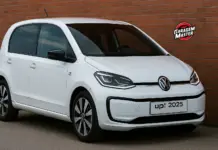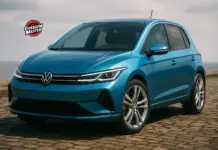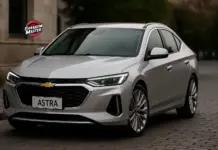The conversion of conventional cars into convertible models is a tradition that defies time. In the mid-1970s and 1980s, this type of modification was quite common in Brazil, but with the opening of imports in the 1990s, the practice decreased, as vehicles from other countries began to become more accessible. However, for some companies, such as Swap Cars and Antiques, this market has not died. Located in Campinas, Sao Paulo, Trocar has over 30 years of experience in restoration of old cars and in transforming popular models, such as beetle and Celtic, in authentic convertibles. This tradition that began with the company's founder, Laércio de Almeida, continues alive with the work of his son and Trocar designer, Bruno Bertoli.
The Origin of Exchanging Cars and Antiques
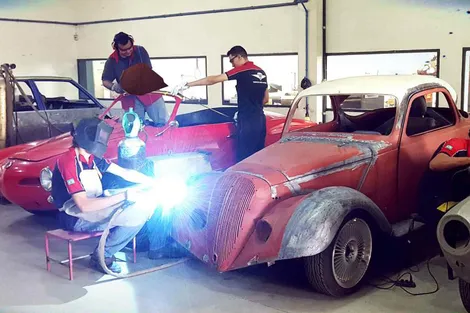
Trocar was born from a tapestry. Over 40 years ago, Laércio de Almeida opened his own business in Campinas, where he performed upholstery services on vehicles. However, his talent and passion for cars led him to expand the scope of his work, and began to perform complete restorations. As he himself says, at the time, many people were afraid of working on more expensive cars, like the Ford Maverick and Chevrolet Bel Air. But Laércio was not intimidated. He accepted the challenges and ended up becoming a reference in the city.
One day, Laércio found a beetle partially disassembled and decided to make a hood for him. As soon as he finished, he found an interested buyer. The experience was so successful that Laércio decided to make another one. He soon realized that there was a demand for these convertible models.
The Beginning of Conversions
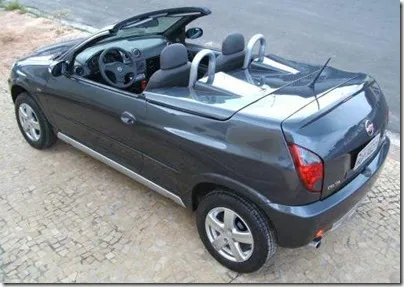
With the growing demand, Laércio began to produce convertible Beetles, attracting the attention not only of Campinas residents, but also of other cities. Over the years, it has improved its techniques and expanded its portfolio to other popular models. Thus, in addition to the Beetle, Trocar began to modify vehicles such as the Opal, O maverick, O Astra, O Celtic and any other model that was taken to the workshop.
For decades, the company produced out of series models, creating exclusive versions that, in some cases, surpassed the appeal of the original vehicles. The converted models gained a certain aura among car enthusiasts in Brazil, who saw Trocar's work as a way to revive some of the glamour of past decades, when convertibles were synonymous with status and style.
Changes in Legislation and Adaptation of Trocar
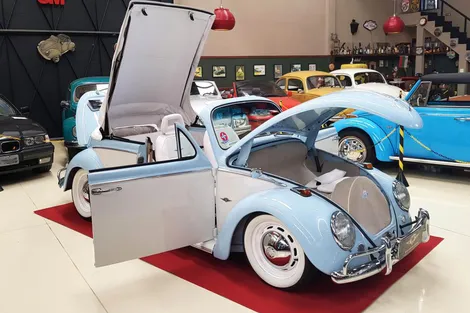
Over time, the traffic and safety laws for converted vehicles in Brazil have become stricter, which has had a direct impact on Trocar's work. These changes have forced the workshop to adopt higher safety standards to ensure that modified vehicles can circulate without legal problems. Trocar currently specializes in Beetle and Karmann-Ghia conversions, the only models for which the workshop has official approval to carry out modifications, guaranteeing the Certificate of Compliance with Traffic Legislation (CAT).
This certificate is essential, as it ensures that the owner will not have any problems when licensing the car. Without it, a modified car could face serious restrictions on legal circulation. Bruno Bertoli, Laércio's son, explained that obtaining the CAT is not an easy task and requires meticulous work, which involves structurally reinforcing the bodywork to ensure passenger safety.
The Engineering Behind Convertibles
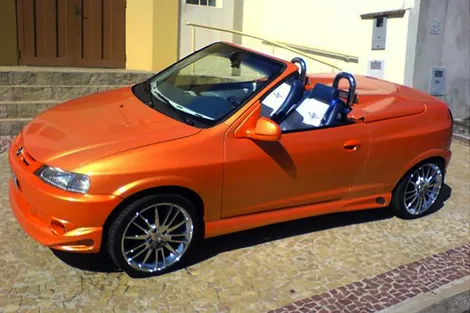
To turn a car into convertible, Trocar follows a rigorous process. After removing the roof, it is necessary to reinforce the vehicle structure. Imagine that a car with a roof that resembles a closed shoe box: it has structural rigidity. When the roof is cut, the vehicle loses this resistance and becomes “soft”, which is a risk to the safety of the occupants. Therefore, the workshop installs steel plates on the floor, air boxes and other structural parts of the car.
After reinforcing the structure, the Trocar team begins working on the hood. Most customers opt for the manual hood, which is more practical and functional, but there is the option of installing electric hoods, which offer an additional level of convenience. On average, the conversion process takes about five months and has a cost that starts from R$ 25,000.
A Business of Passion and Tradition
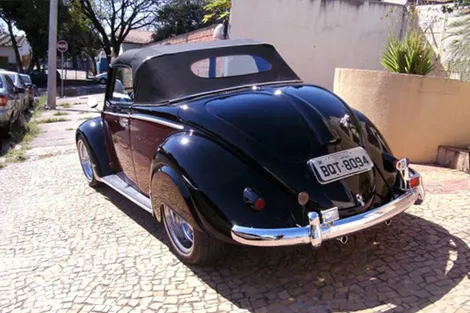
Trocar is not just a car workshop; it is a symbol of tradition and love for classic vehicles. For more than three decades, the company has produced more than 1,000 convertibles and maintains an average of 60 conversions per year. Even with legal limitations and the preference for modern cars, Trocar remains relevant by adapting to the needs of a specific niche of customers, passionate about classic cars and exclusive customizations.
Taking Inspiration from Iconic Dealerships of the Past
Trocar is inspired by some famous dealerships and workshops from the 1970s and 1980s, such as Sulam, The Dacon and the Souza Ramos, which produced unique vehicles for the Brazilian market. These companies stood out for creating unique versions of popular models, adapting them to the tastes and needs of Brazilian consumers. Today, Trocar carries on a bit of this legacy, bringing to light a lifestyle that, for many, is still synonymous with freedom and nostalgia.
The Future of Converted Classics
Currently, legislation has made it impossible to convert some more modern models, such as the Celtic, but Trocar remains true to its purpose with the conversion of Beetles and Karmann-Ghias. Among the company's dreams is to recreate a version of the Hebmüller Beetle, a legendary convertible model produced in Germany between 1949 and 1951, which is a true rarity in the world of collectors.
For those looking for a convertible Beetle, Trocar continues to be a reference. It is an opportunity to have a personalized, unique vehicle with all the necessary safety to drive on the streets of Brazil. For approximately R$ 25 thousand and a few months of waiting, you can fulfill the dream of having a classic and exclusive car, tailor-made for you. And the best of all is knowing that this car was made with passion and tradition, following in the footsteps of masters of classic vehicle customization.
Trocar Autos e Antigos is much more than a workshop. It is a bridge to the past, a rescue of a time when cars were more than just means of transportation; they were symbols of style, personality and, above all, freedom.

